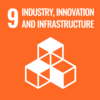In partnership with Siemens, the University of East London (UEL) has launched a 'Living Lab' IoT platform that brings together UEL data sets from across our estate to drive net zero research and innovation. This platform creates access to data for students, researchers, and industry partners to conduct real-time research and innovation utilising our physical spaces as a testbed.
This delivers benefits to our net zero pathway, through further optimisation of our assets, as well as to our research programmes who are able to rapidly innovate and apply learnings in real-time.
The Living Lab platform is currently live for one of our buildings, and we are working towards connecting our entire University and local partners into an interconnected smart community that drives low carbon learning and innovation.
An exciting ‘living lab’ project that brought together and engaged diverse stakeholders to develop a ‘living lab’ IoT platform that utilises institutional data in support of net zero research and innovation. Supported by a robust industry partnership that opens up new audiences, there was good evidence of linkage to institutional KPIs and examples of qualitative engagement including hackathons, internships, and integration with local civic and global agendas.
"This is a wonderful recognition of the University of East London’s commitment to creating a healthier, fairer and sustainable world, aligned with UN Sustainable Development Goals and our 10-year strategy, Vision 2028. This ethos is embedded in everything we do, including research, curriculum and partnerships with local and global communities."
Professor Amanda Broderick ,Vice-Chancellor and President
“Congratulations to the University of East London on winning the Jisc-sponsored ‘Digital Futures’ category at this year’s Green Gown Awards.
Their innovative ‘Living Lab IOT Platform’, in partnership with Siemens is a fantastic example of how industry partnerships can support sustainable practices not only throughout university estates, but also across local and global communities.
The first vital step on the road to net zero is to understand your data. But this project has gone above and beyond that, providing students, researchers and industry partners with the information needed to conduct real-time research to develop solutions for a sustainable future" said Clare Casey, head of environmental sustainability at Jisc.
